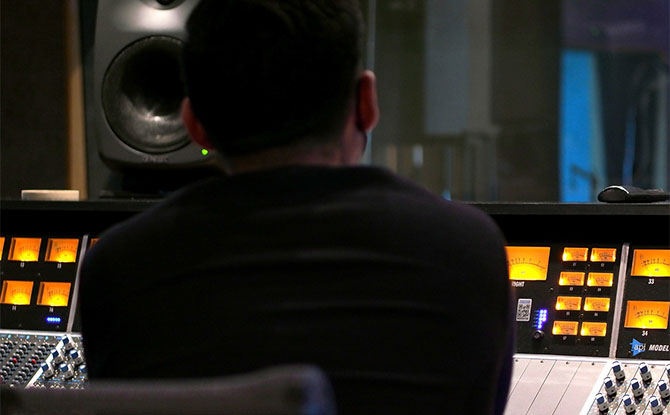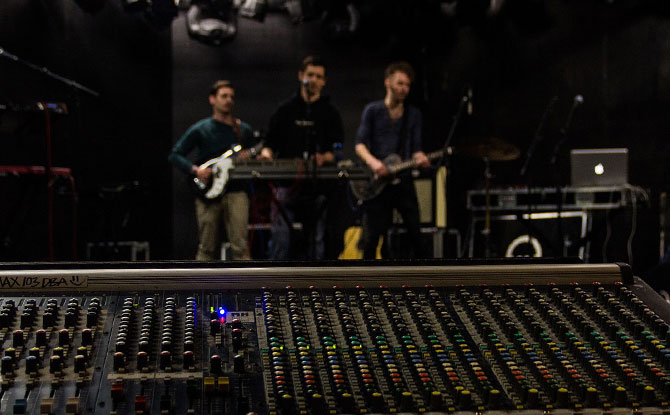What exactly does an audio engineer working in a studio do? What are his or her responsibilities and what actually goes on behind the scenes (or behind the consoles) to make the magic happen?
If musicians don’t collaborate with the best audio engineers, their music wouldn’t sound the way they would want it to. So, an audio engineer is an essential part of the audio or sound production process, whether in a live setting or behind the doors of a studio.
Let’s go over the duties of an audio engineer and what it takes to become a valued one.
What is an audio engineer?
Audio engineers specialise in live audio recording, mixing, post-production, and mastering. An audio engineer has the skills necessary to manage sound for live events such as concerts or to manage sound for events such as streamings or create and complete recordings.
The majority of audio engineers are self-taught with the help of a mentor, although some also have some college education or vocational training in a specialist recording facility.
What does an audio engineer do?

Audio engineers are involved live sound recordings, including symphonic concerts, band performances, sound for film and television, field recordings, live audio production, and more, audio engineers can be hired.
Generally speaking, audio engineers are in charge of producing high-quality sound recordings that satisfy the requirements of the contractor, who could be a media producer or an artist.
A few fundamental responsibilities are involved in audio engineering; below are some of the particular duties that they will perform day-to-day.
1. Maintaining and managing a professional recording studio
You need a professional studio and studio management to record sound professionally.
Audio engineers have to supervise the planning and construction of their studio, ensure that it is outfitted with all essential tools, and acoustically treat each of the rooms. Naturally, creating a professional studio takes a substantial expenditure. Therefore an audio engineer building a studio will need to carefully budget for different costs.
Typically, this entails collaborating with a group of engineers to build a studio-centred business. The head audio engineer is responsible for maintaining the studio after it is set for recording while also bringing in bookings and contracts.
Even while maintaining a professional studio’s financial side isn’t the most exciting aspect of audio engineering, it’s undeniably one of the most crucial. If your studio is not professionally constructed and managed, or if you are not actively booking contracts and recording live performances, you won’t survive for very long.
2. Producing quality recordings
The act of actually recording live sound is the most obvious aspect of an audio engineer’s profession.
Audio engineers need to be knowledgeable about signal routing, miking techniques, and the optimal recording setup for different live bands. To collaborate with producers and artists and make the performances possible, they also need some interpersonal skills.
3. Mixing recordings
Once an audio engineer has produced high-quality audio, it is time to start sculpting and moulding the recordings in the mix room into something almost finished.
This necessitates familiarity with a wide range of mixing techniques, such as EQ, compression, filtering, gain staging, effects, layering, pitch correction, and many others. A track’s or album’s initial mix is frequently drafted by mixing engineers, who subsequently make changes based on the artist’s feedback and demands.
4. Mastering the final mix
There is one more phase in the audio engineering process once the final mix of a track or album is finished, and that is mastering.
Each piece of music goes through a technical procedure to make it sound as good as it can on any speaker and to compete in terms of volume on streaming services and radio.
In essence, mastering is the last phase since it takes a mixed track or album and optimises it for commercial distribution. Professional mastering engineers with skills in professional audio mastering frequently carry out this unique method.
5. Help musicians

An audio engineer is someone who deals with the technical aspects of sound during the recording, mixing, and reproduction processes. To give their work the sound they are going for, musicians, record producers, and audio engineers frequently collaborate.
For instance, an audio engineer might combine different musical segments, apply auto-tune to a recording, and/or add artificial sounds to a track. Producers and audio engineers work in diverse fields. Some audio engineers, however, continue their careers as producers or take on the position of producer.
How to become an audio engineer
To become a qualified audio engineer, no particular educational path is necessary. Many audio engineers begin their careers as junior engineers in larger professional studios; alternatively, they hustle to establish their reputation and business by gradually expanding their network and portfolio.
Gaining experience in the studio, working on numerous projects, and eventually finding a method to own, maintain, and manage your studio are the keys to being a professional audio engineer.
Conclusion
You shouldn’t expect yourself to be an expert at every aspect of professionally recording, producing, and finishing a track because creating music is difficult.
Hiring a professional audio engineer will show that you value your art and that you are treating it with the respect it merits. There is no shame in hiring someone to help you finish your recordings.
Learning how to record music and get a nice sound takes time because music-making is a process. Never stop learning, and never be hesitant to ask for assistance when you need it.

